Akaka is African heaven!
Tim and I and our 2 Ecoguides spent 3 nights at Akaka, which is a camp at the junction of 2 rivers south of the lagoon. Akaka is one of the most pristine and stunningly gorgeous places I have ever seen. As we traveled down the river from the lagoon we passed through different habitats- first dominated by palm and papyrus, then large areas of open swampland bordered by hardwood forests, and finally the river is bordered by the hardwood forest itself. We saw a group of 5 hippos (apparently rare to see this many adults together), saw lots of forest buffalo (including a carcass killed by a leopard), 2 species of monkeys (Red-capped mangabeys and Moustached), spectacular birds and even had an elephant walk through camp. We saw a manatee the first day as we traveled to the camp along the river, and saw likely feeding sign (although in some places it’s difficult to differentiate between manatee, hippo and buffalo) and found fresh feces. There have been previous sightings at Akaka, but their use may be seasonal. We didn’t have frequent sightings as we have in the northern part of the lagoon.
Akaka was set up by Iguela Lodge as a satellite camp for tourists to see wildlife and comprises a main platform building with a sitting area and dining room overlooking the rivers, and 5 platforms up a hill nestled in the trees with dome tents and outdoor showers. We had the place to ourselves which was great! Very relaxing to listen to all the wonderful forest sounds. One morning we woke up and saw an elephant lying in the grass just across the river from the living area platform. The Tse Tse flies were bothersome, especially when we were out in the boat, but still not as miserable as the chiggers last time I was in Belize!
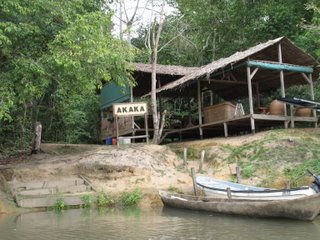 The main living / dining platform overlooking the river
The main living / dining platform overlooking the river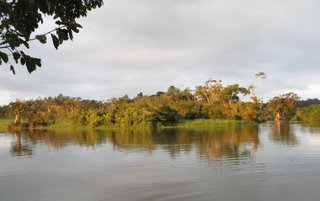 The view from the platform at sunset
The view from the platform at sunset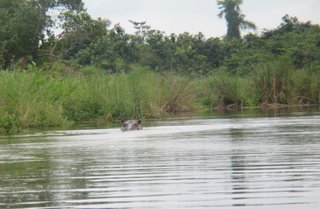 A hippo in the river
A hippo in the river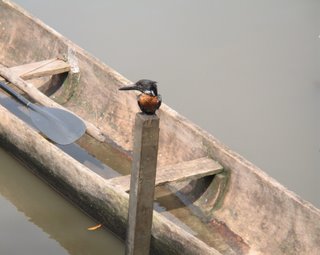
Giant Kingfisher
After we finished our surveys, an EcoGuide named George who is currently stationed at Akaka for 3 months, took Tim and I on a walk through the forest. Elephant and buffalo tracks were everywhere, we saw some incredibly beautiful butterflies and flowers, and enormous trees. Huge Black-Casqued Wattled hornbills flew through the trees (the huge casque on their bill makes a cool humming sound as they fly) and we could hear the most amazing trills and songs of other forest birds from the trees above. George showed us which trees chimps prefer, fruits that monkeys like and which trees elephants like to scratch bark off of…even the large roots of trees elephant hunters use to escape charging elephants (he’s a former elephant hunter). A couple pictures:
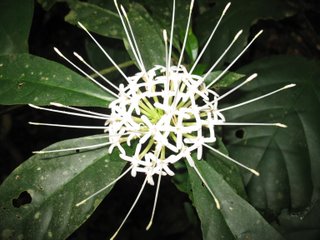
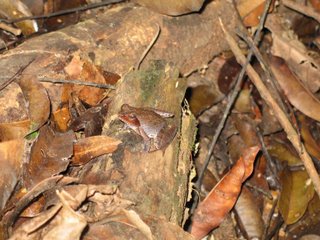
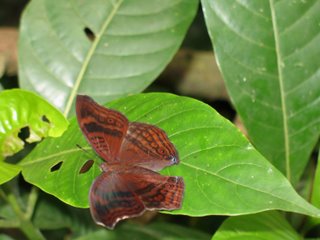 I have so many incredible pictures, but the internet is slow, so I’ll have to post more later.
I have so many incredible pictures, but the internet is slow, so I’ll have to post more later.
On the way back to Iguela yesterday we stopped and collected the skeleton of a manatee carcass that Tim had found in July, plus collected part of the carcass (head and flippers) that I discovered in the lagoon last week. The maggots are doing their best to clean off all the soft tissue- I’ll spare you the close up maggot pictures! 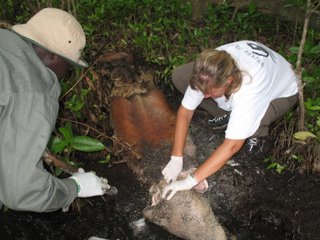



No Comments